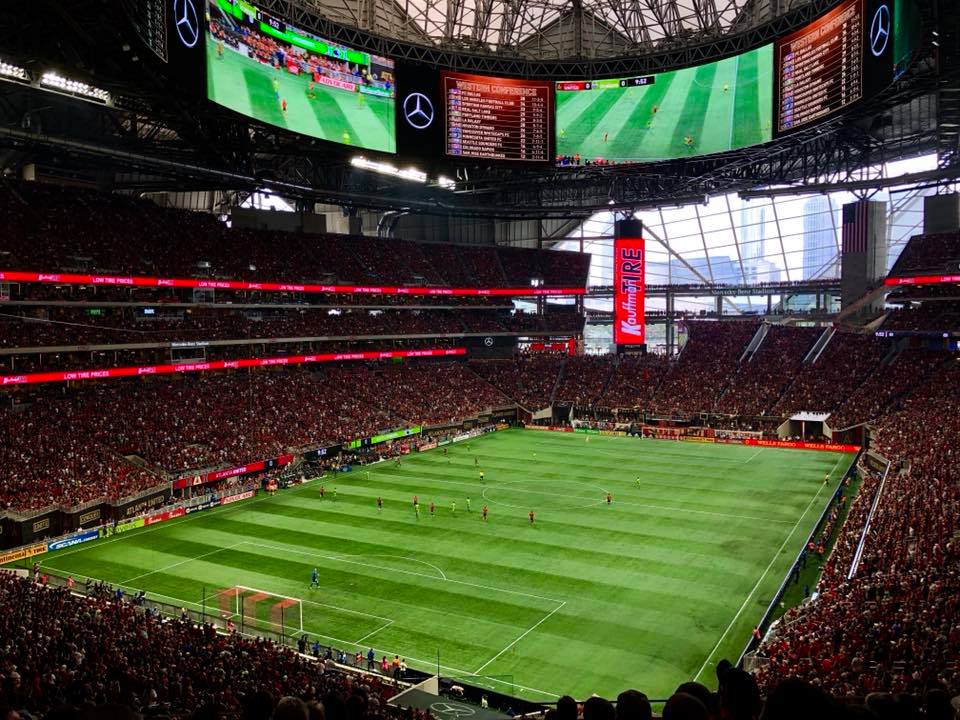We end 2018 with a countdown of the 10 biggest stories of the year on Soccer Stadium Digest, as chosen by editors and partially based on page views. Today, #9: Atlanta United FC‘s successful sophomore season.
After bursting on to the scene with a strong inaugural 2017 campaign, MLS‘s Atlanta United FC left itself with a high standard to meet in 2018. On and off the field, the club not only managed to reach that level of success, but surpass it in a sophomore season that included new attendance records and an MLS Cup.
On the attendance front, United set several records this year. That included the MLS single-season total attendance record with 901,033 fans, as well as a record per-game average attendance of 53,002. Helping to fuel that success were the seven regular-season matches that drew 70,000-plus fans to Mercedes-Benz Stadium–the dual use NFL/MLS venue that is shared by United and the Atlanta Falcons. (Both teams are owned by Arthur Blank’s AMB Group.) To top off those numbers, United drew 73,019 fans to its MLS Cup victory over Portland.
United had a few factors working in its favor this year. Aside from its run to the MLS Cup, the club’s 2018 was also highlighted by its first full season at Mercedes-Benz Stadium. A prolonged construction schedule prevented United from hosting its first home game there until September 2017–home matches were played at Georgia Tech’s Bobby Dodd Stadium in the interim–so this season marked the first time that the club was able to play its full home slate at the facility. In its first full year of MLS, Mercedes-Benz Stadium defied some ongoing trends–including the push for smaller, soccer-specific stadiums–by proving to be a successful dual purpose facility that could ultimately provide fine fan experiences for both MLS and NFL.
With United showing no signs of slowing down, its successful ability to leverage Mercedes-Benz Stadium might have interesting implications on the league. While the smaller soccer-specific model works for many MLS clubs, the success of Atlanta and attendance runner-up Seattle could perhaps lead to some circumstances in which the league seeks out larger facilities. That would not result in every team drawing 70,000-plus fans to a handful of matches each season, but it could lead to growth in some cases.
The answer to that question will emerge over the long run, but for now both United and MLS can bask in the club’s success. A successful inaugural season was one of the highlights of 2017, and the club managed to outdo itself in 2018 with an even more robust campaign.
Image courtesy Mercedes-Benz Stadium.
Here’s our Top Ten of 2018 to date:
Best of 2018, #10: New Beckham Group Stadium Plan Emerges in Miami

